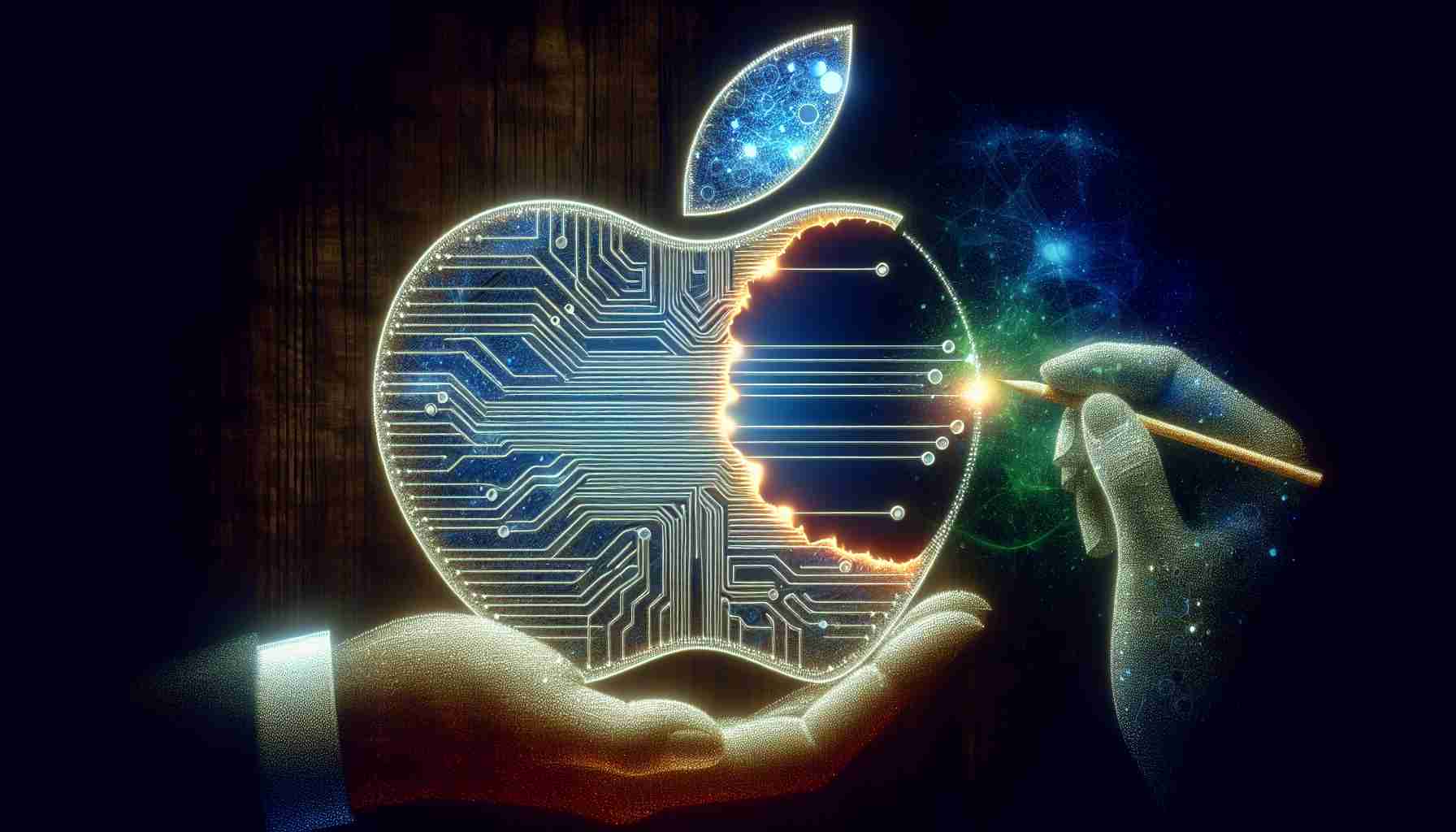In a strategic move, Warren Buffett’s Berkshire Hathaway has notably cut down its investment in Apple, signifying a change in its focus on tech stocks. This action is aligned with a general reassessment of tech investments on Wall Street, influenced by the uncertainties surrounding the economy and climbing interest rates.
Berkshire Hathaway recently adjusted its investment strategy, demonstrating a retreat from heavy tech reliance by selling off 100 million Apple shares, which represents a 25% reduction. Despite this, Apple still holds the position as the most significant asset in their portfolio, indicating Buffett’s confidence in Apple’s long-term value.
The wider tech market itself mirrored a downturn as the Nasdaq 100 faced its longest slump since January, experiencing a five-day losing streak. On a tumultuous trading day, technological giants such as Amazon, Meta, and Nvidia saw a considerable dip in share prices, collectively leading to nearly $500 billion being shaved off the sector’s market value. This market reaction comes amid concerns over potential shifts in Federal Reserve policies regarding interest rates.
Amidst this turbulence, a standout winner was AppLovin. Bolstered by exceptional earnings and revenue performance, AppLovin defied the trend with a 46% stock surge on Thursday alone. The company’s advanced AI capabilities have fueled significant growth in its advertising sector, propelling it to the forefront of successful tech entities in 2024. With impressive revenue projections for the coming quarter, AppLovin continues to capture investor interest and confidence.
How Tech Investment Shifts Could Reshape Your Future
In an unexpected turn, Warren Buffett’s decision to cut down Berkshire Hathaway’s investment in Apple suggests a potential seismic shift in tech stock dynamics and raises broader questions about the future landscape of technology investments. So, what does this mean for everyday lives, communities, and national economies?
The Ripple Effect of Tech Market Reassessment
The strategic resizing of tech portfolios, particularly by influential investors like Buffett, can have wide-reaching implications. For individuals, this might manifest as changes in retirement fund values or investment strategies, especially if their portfolios are tech-heavy. Communities with robust tech sectors could face economic fluctuations affecting jobs, housing markets, and local commerce.
Nationally, economies that heavily rely on tech industries could see shifts in GDP growth trends. Countries that position themselves as tech innovation hubs, such as the United States or China, might need to recalibrate their economic forecasts and policies.
A Glimpse into the Future: Opportunities and Risks
The potential decrease in tech stock dominance might spur diversification, offering emerging sectors a chance to shine. For instance, renewable energy, biotechnology, and advanced manufacturing could attract more investor attention. However, this transition may come with risks, such as market volatility and unfamiliarity with new sectors.
Interesting Fact: Who is AppLovin?
Standing out amidst the tech stock dips was AppLovin, a company that experienced a notable stock surge. As a leader in AI-driven advertising, AppLovin showcases how technological innovation can transcend market slumps. Their impressive 46% surge in stock value, despite a turbulent tech market, highlights the potential for outliers to succeed even in adverse conditions. This raises questions about how AI capabilities might influence not just advertising but various other sectors.
The Pros and Cons of the Shift
Advantages:
1. Diversification: Reduced tech dominance may encourage investment in diverse sectors, leading to balanced economic growth.
2. Innovation Incentives: New industries might receive increased funding and support, fostering innovation.
Disadvantages:
1. Market Uncertainty: Transitioning away from tech might induce short-term volatility and investor anxiety.
2. Economic Impact: Regions and workers dependent on tech industries could face economic challenges and job insecurity.
Questions We Need to Ask
1. How will emerging industries capitalize on the potential decline in tech stock market influence?
Emerging sectors could seize this moment to attract investment by demonstrating innovative solutions and stable growth potential.
2. Will traditional tech giants innovate to regain investor confidence, or will entirely new players rise to prominence?
This is yet to be seen, but continuous innovation and adaptation will be critical for sustained success in the tech industry.
For more insights into investment strategies and market dynamics, check out Investopedia and Forbes. Stay informed about how these financial shifts could influence your future and explore strategic adjustments that might be necessary for your personal or business investments.



















